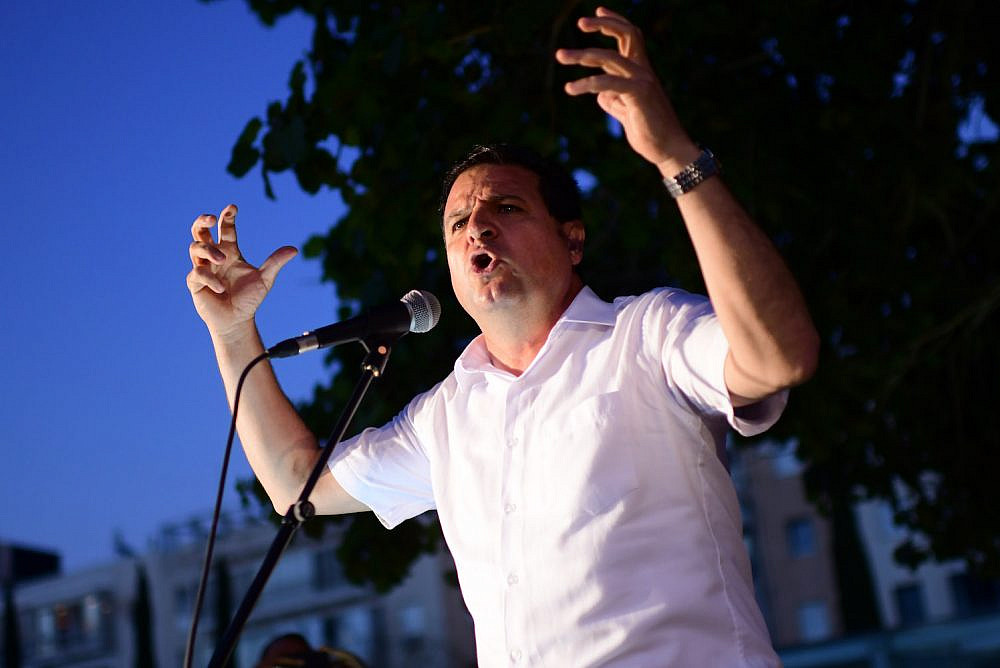Since stepping into the national political scene in 2015, and particularly over the past two years and four rounds of elections, Joint List head Ayman Odeh has turned the removal of Benjamin Netanyahu into a mainstay, if not the mainstay, of his political agenda. Odeh has said time and again, almost at every opportunity, that Netanyahu has been Israel’s worst prime minister with the worst record of incitement against the Palestinian public, making his removal imperative.
Netanyahu’s eventual ouster in June, however, came at a heavy price for the Joint List — an alliance of four factions representing Palestinian society’s disparate political streams — which fell apart under Odeh’s watch. The Islamist Ra’am party, previously part of the Joint List, joined the coalition government, seemingly hijacking Odeh’s agenda. Odeh’s vision of building a wide “democratic camp,” which would fight against racism, the occupation, and for social justice in Israel seemed beyond reach after Israel’s two left-wing Zionist parties, Meretz and Labor, joined a government led by Naftali Bennett, the former head of the Yesha Council, an umbrella organization for the settlement movement in the West Bank.
This left Odeh and the Joint List as the sole left-wing component of the opposition. Whispers that the whole notion of the “democratic camp,” Odeh’s brainchild, was ludicrous began bubbling up inside Hadash, the left-wing, Arab-Jewish slate that Odeh heads.
As if that were not enough, the last two months, with their unprecedented violence in so-called “mixed cities” inside Israel, cast a shadow on whether Jewish and Palestinian communities are able, or at least politically motivated, to work together for any sort of shared cause, or even just live side by side.
But in an interview with Odeh last month, three days after Netanyahu was replaced, it was difficult to detect any signs of change on Odeh. He may have spoken with a little less gusto than usual (although that may also be attributed to the late hour of our meeting at a Tel Aviv café), but his fundamental principles remain the same: a Joint List that represents a demand for civil-political equality and national equality for Israel’s Palestinian citizens; a push toward building a broad “democratic camp” with tens, perhaps hundreds of thousands of Israeli Jews; and a fervent belief in a two-state solution.
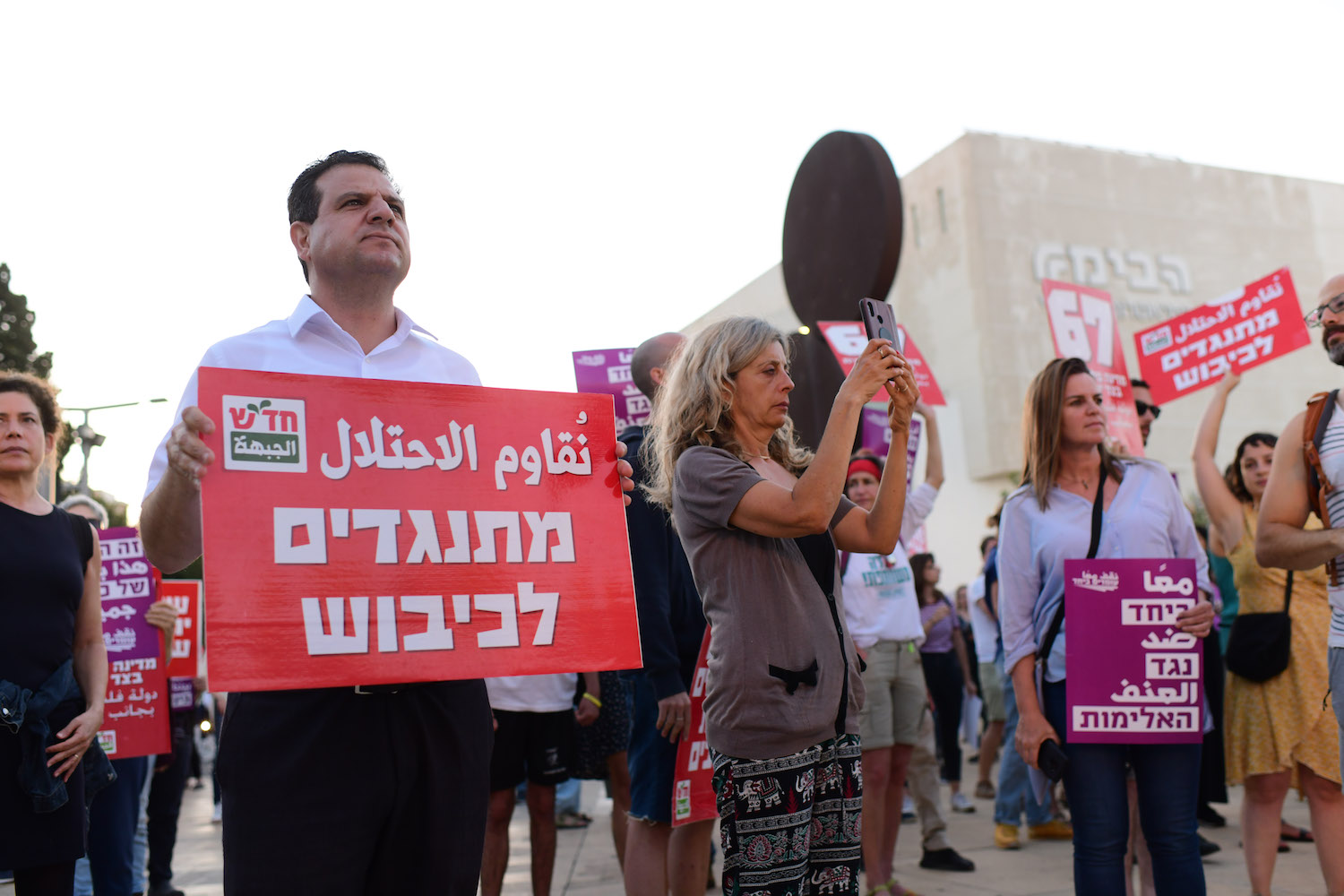
In Odeh’s view, Ra’am’s entry into the government has not only hurt the Joint List, it has hurt the very status of Palestinian citizens. Ra’am’s approach, Odeh says, is rooted in a low self-image that transforms Palestinians from citizens who deserve rights to “subjects” who beg for them. In the case of the liberal Meretz party, however, joining the government was a political, perhaps even moral, error, though not an irredeemable one.
Perhaps most interesting is Odeh’s sharp rejection of the one-state solution. Odeh is aware that for many Palestinians, the events of the past two months have bolstered the belief that there is a single Palestinian struggle between the river and the sea, yet he sets clear limits to that struggle by holding fast to the idea of establishing an independent Palestinian state alongside the State of Israel. While others speak of one struggle shared by Palestinians living in Gaza, Jerusalem, and Lydd, Odeh refuses to erase the Green Line.
This interview was edited for length and clarity.
Take me back to the Sunday when you saw Netanyahu heading for the opposition benches. How do you feel?
A little ambivalent. On the one hand, I wanted him gone, so I am happy he has been replaced. On the other hand, a government headed by Naftali Bennett — that’s not what we were hoping for. I’m also gravely concerned that Netanyahu and his cronies will be able to incite large segments of the population, including Mizrahi Jews [Jews who hail from Arab or Muslim countries] and the poor against the bourgeoisie that is in power now, and that he may be back in power in a matter of months.
That’s why, specifically from my vantage point, I see us as playing a crucial role in leading the left-wing opposition, from a place that reaches out to the poor, to Mizrahim, obviously to the Arab population, who are the hardest hit. We have spoken a lot about building a large democratic camp that will lead the left — now is precisely the time to do that. There are huge opportunities, and I think we are now starting over.
You’re talking about reaching out to the vulnerable, to Mizrahi Jews. How are you going to make that connection?
Likud is trying to create a sense that the Ashkenazi elites have taken back the government and that they will hurt Mizrahim and the disempowered. Likud has been in power since 1977, more than 40 years. What has it done for Mizrahim on a profound level? The truth is that the Bennett-Liberman government will only continue Likud and Netanyahu’s neoliberal policies, undermine social services, raise the cost of living, and increase inequality.
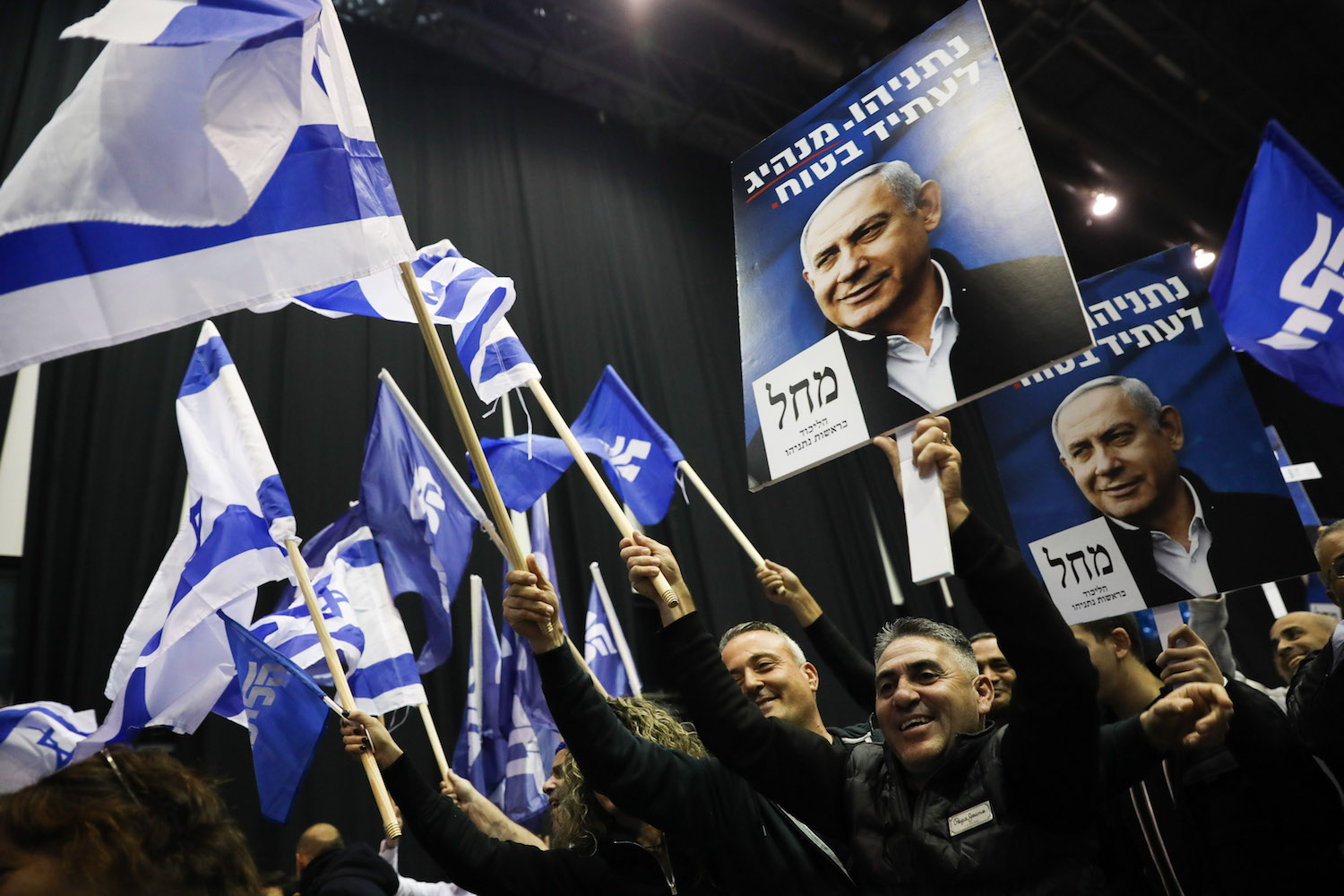
But there is an incredible opportunity here, because now that Netanyahu’s rule is over, the politics of “Yes Bibi — No Bibi” are over too. This is a real opportunity to bring the issues that hurt the vulnerable and the poor, the people living in the periphery, and mostly Arab citizens, to the fore.
Inside the Joint List some celebrated the ostensible proof that the “democratic camp” is an illusion. A recent op-ed in Al-Itihad [the Arabic language newspaper of Israeli Communist Party] talks about the Zionist left as “right-wing-minus.” Do you feel that in the moment of truth, the Zionist left didn’t go all the way with you?
Anyone who thinks Meretz is right wing or even centrist is wrong. Anyone who can’t see Meretz’s left wing, democratic, liberal path is wrong. Obviously we greatly differ on a number of issues. Does that mean we won’t cooperate with Meretz? Of course not.
But when I talk about a democratic camp, I am not referring to parties specifically. I’m talking about the Jewish left. Take just the people who send their children to Hand in Hand [a binational school], their families alone make up 35,000 people. There are tens of thousands of Jews who can agree with us on peace, democracy, equality, and social justice.
We agree on the main principles: a Palestinian state inside 1967 borders, civil-political equality, and national equality. Jews might think national equality means a binational state, Arab autonomy, a [Palestinian] parliament in the Galilee. But no — national equality means recognizing [Palestinian citizens of Israel] as a national minority; promoting Arabic as an official language; acknowledging and rectifying historical injustices; and making sure the country is a democracy and that we have a right to have influence on every single matter.
If there are disagreements on certain things — Zionism, what position to take on Bashar Assad [Syria’s president], or the agreements with the UAE — then we set up a roundtable to discuss these issues and sort them out. Are we not going to go forward together over a small disagreement when we have more than 90 percent in common?
‘We wanted to be pragmatic and replace Netanyahu’
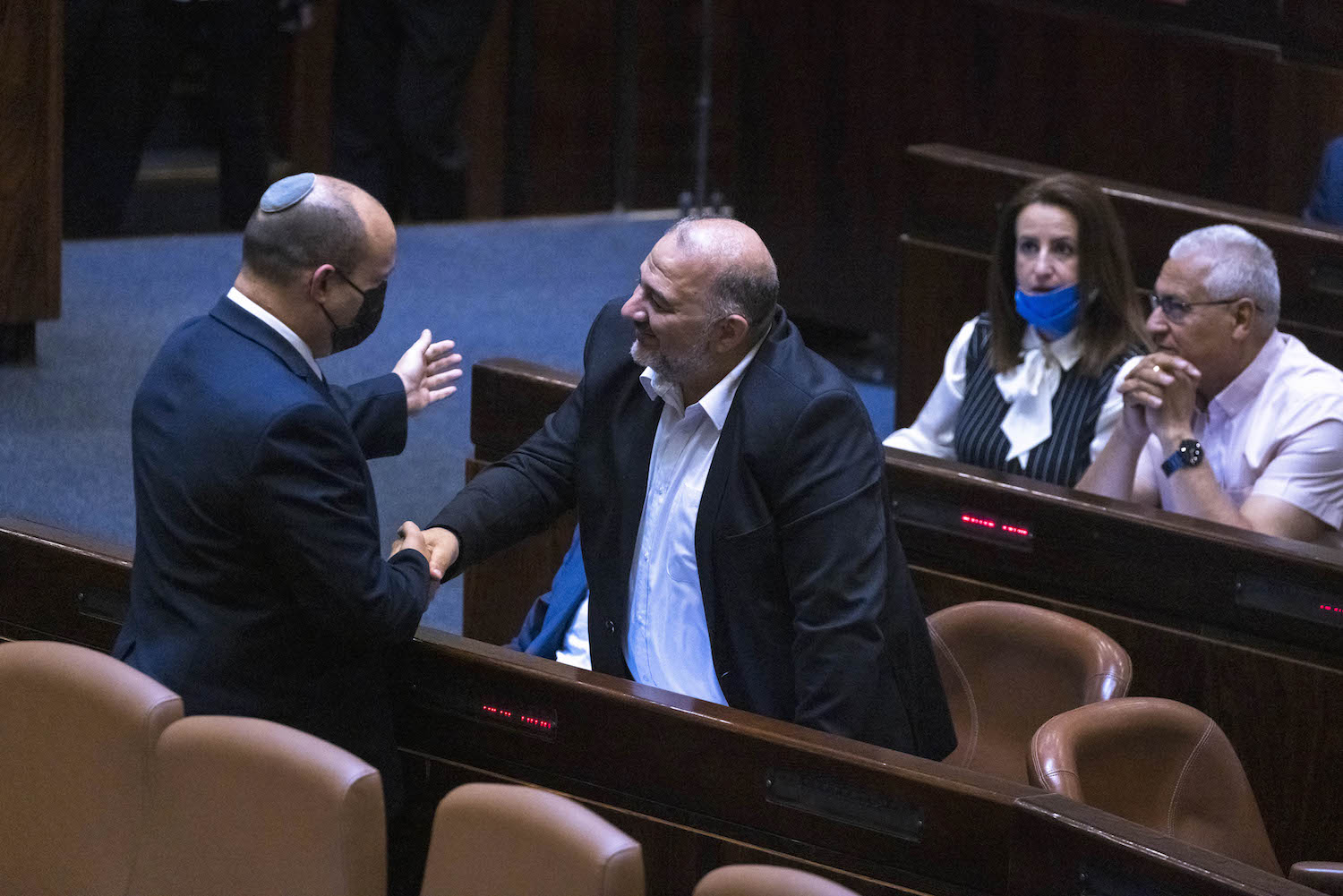
These are, in essence, the ideals of the “democratic camp” you’ve been talking about for so long. Do you feel like there’s a retreat from them?
No, I think we’re seeing a huge opening. People were happy when Netanyahu was sent to the opposition. I share this happiness. But every day under Bennett’s leadership opens a horizon for a true left-wing.
Let’s stay on Bennett. You recommended Benny Gantz [to form a coalition] 18 months ago. You were close to giving him a vote of confidence.
Right.
Is there a substantive difference between what you were offered then and what the coalition agreement with Ra’am says now? It’s not as if you were offered two states or negotiations with the PLO either.
The big difference between what happened with us and what’s happening now is what Ra’am is doing. Ra’am has conceded to being subjects rather than citizens. Ra’am told our society, “there are problems here and there. We want to take care of them.” Even during the events that took place in May, they said nothing; they slammed on the brakes. Even on issues around democracy — they don’t care who is on the Supreme Court. This mindset of being a subject, not a citizen, without positions — neither democratic nor national. It goes entirely against our approach.
The other thing is that they built a strategy on taking advantage of opportunities rather than improving the status of [Palestinian citizens]. Opportunities may come along once every number of years. If it weren’t for Netanyahu, the right wing would have had 70 seats and no one would have given Ra’am a second look.
To get back to your question. We’ve come a long way in the fight for our legitimacy. There is a difference between the situation two years ago or 18 months ago and what is happening now. Back then, even leaning on [the Palestinian parties to form a coalition] was an issue. [We were told] don’t get in the way; let us do this. Back then, we wanted to be pragmatic in order to replace Netanyahu. The next step would have been to pursue policy issues.
You’re saying that there wasn’t a huge difference in the coalition agreements. There was no talk of two states then either, but the difference is the climate, the context.
At the time, Gantz was the farthest to the right in the government that was going to be formed. Today, Gantz and Lapid are the center-left of the current government. That’s a very significant difference. The most important ministries too — not just the Prime Minister’s Office — but the Justice Ministry. You know that for Arabs, the Interior Ministry is a particularly important office. So Ayelet Shaked got it. And housing is very important for Arabs too. That’s [Ze’ev] Elkin. Seventy percent of Arabs live in the Negev and the Galilee — that’s [under] Yisrael Beitenu. That is why, in every respect, this is a bad government.
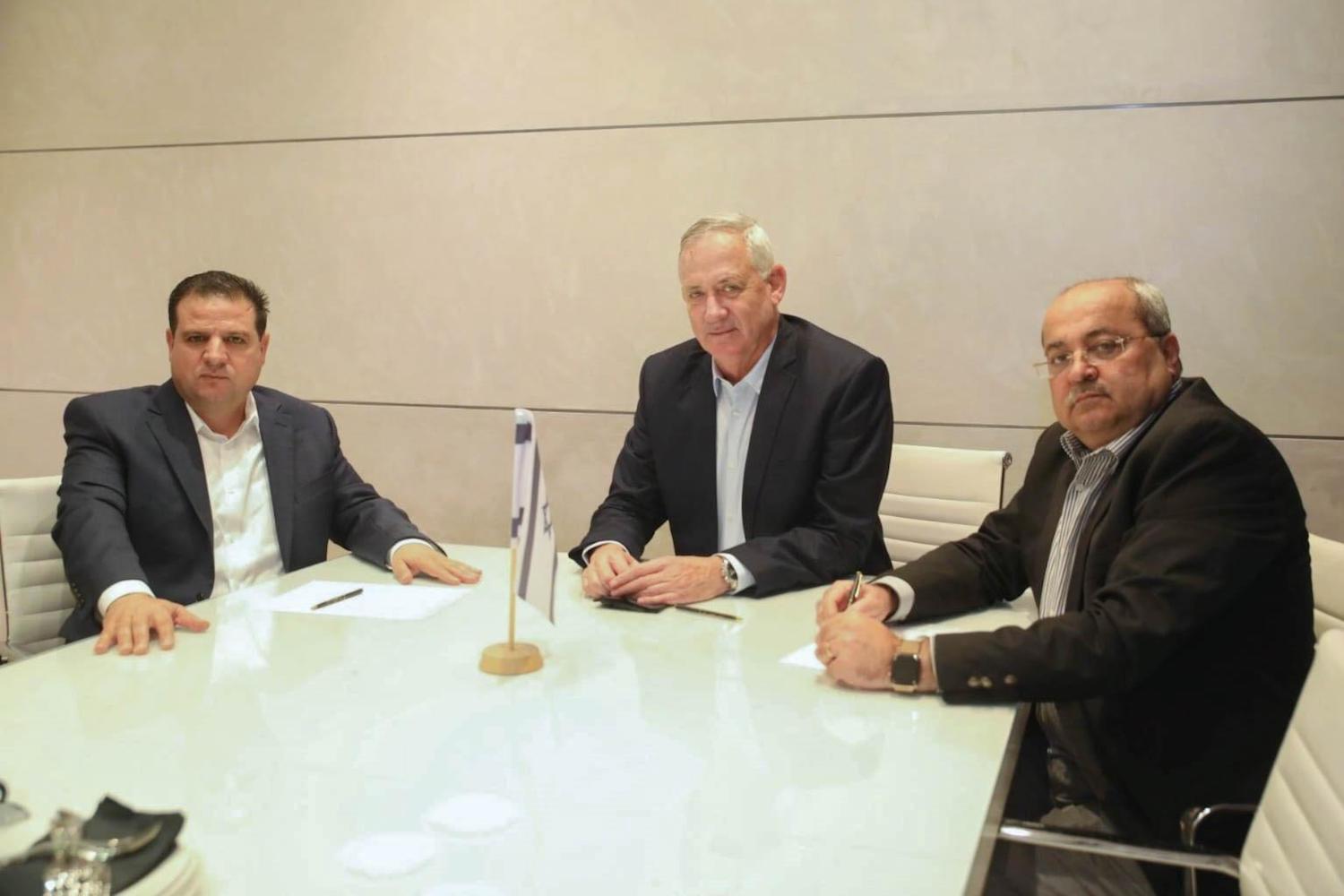
You share no small measure of responsibility for this development. In an interview with prominent Israeli journalist Nahum Barnea, you yourself spoke about joining the government.
I don’t just want to be in the government. I want to be prime minister. A prime minister of peace, of true democracy. I spoke about values with Nahum Barnea. I seek a partnership of peace and equality. Ra’am went for a “supermarket” kind of partnership, with the assault on East Jerusalem and the Jewish Nation-State Law remaining in place.
When Meretz backed Operation Protective Edge [in 2014], it was held against the party for years. If the current government evicts families in Sheikh Jarrah or Silwan, do you think it will cause a rupture with the Zionist left parties?
Absolutely. Is it “anything but Bibi, but Bibi’s way is okay?” It is good that we got rid of Bibi, but we have to replace that equation with a different one — it’s either Bibi’s way or the left-wing way.
And what about supporting the Citizenship Law [which prevents Palestinians in the West Bank or Gaza from marrying Arab citizens of Israel; Meretz has announced it will not support the law]?
The left wing made a huge sacrifice to the right. Even after the government was formed, Meretz continues to make sacrifices. It’s such a basic issue: people wanting to get married. How can it be that they are denied citizenship and basic rights? There is no doubt these things cause a rupture.
Palestinian unity and the question of two states
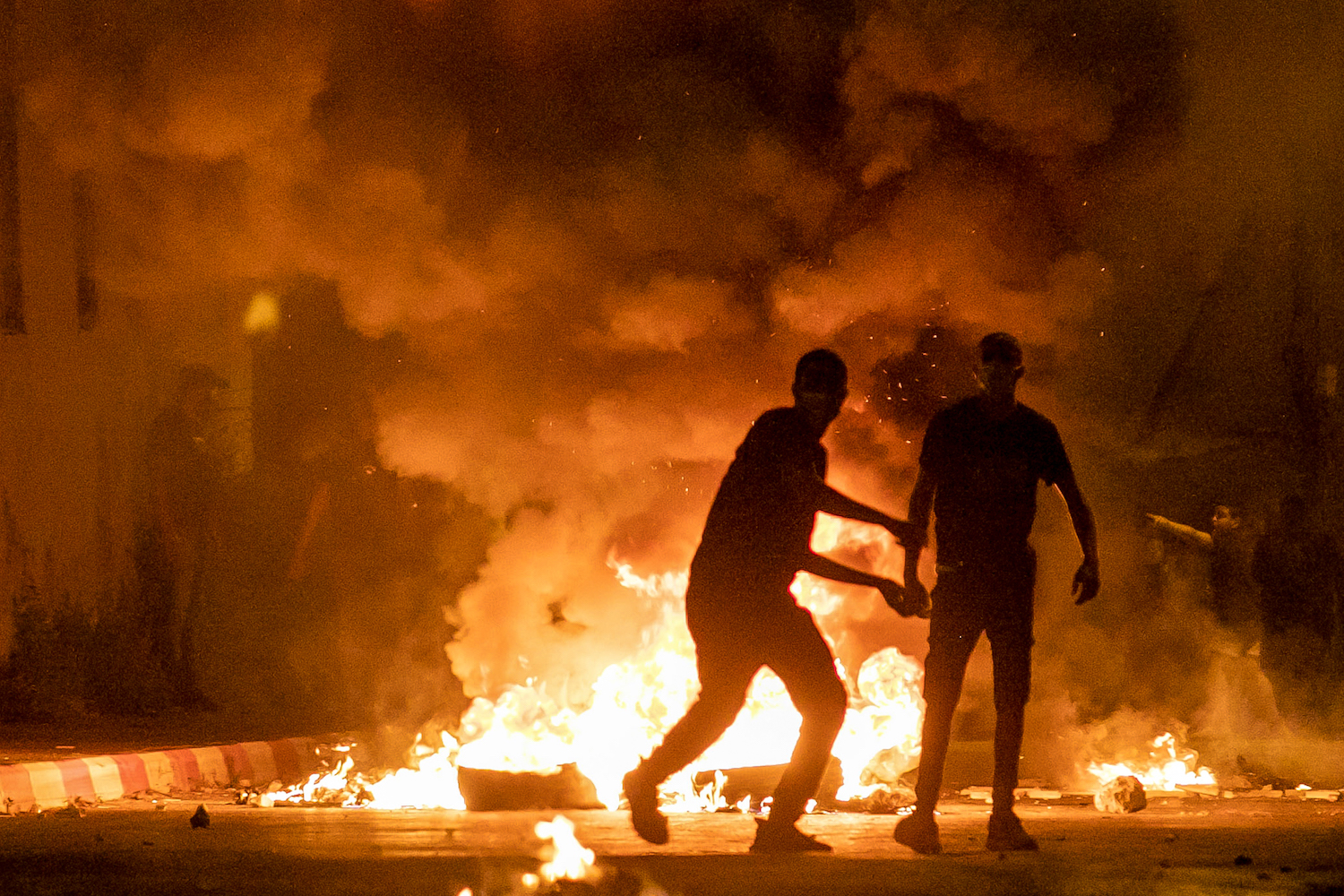
In hindsight, how has the concept of shared Jewish-Arab life suffered from the events in mixed cities, with the violence and counter-violence between Jews and Arabs? How do you react to the accusations that the Palestinian leadership was absent during these events?
The recent events should teach the entire public to fight against Netanyahu’s and the establishment’s tactics of pitting people against each other. That is the core of the estrangement and separation between the two peoples. Those who choose life must fight together against these tactics. That is the lesson from the recent events.
As for being absent — the opposite is true. I decided from the very first day to talk to my public from a deep place. [I said] we were part of the Palestinian struggle and the Palestinian people. At the same time, when it comes to harming civilians or damaging property — I opposed it then and I oppose it now. I did everything I could from the very first moment to steer the public to the right place.
But we shouldn’t think that violence was the main feature of these recent events. The main feature was that Arab citizens showed they are part of a single people and a single issue and were throwing their weight behind ending the occupation.
After what happened in the last two months, I feel many Palestinians living in Israel are feeling a sense of elation, of Palestinian unity. I even heard you talking about the seven million Palestinians between the river and the sea. How have these two months affected the consciousness of Palestinians citizens of Israel?
The most important issue is the one-state or two-state question. Because if it’s one state, then the strategy is different. If it’s two states, it’s a different strategy altogether. I believe there is no solution but the two-state solution. None. A Palestinian state within the 1967 borders alongside Israel.
My heart is with the Palestinians in the occupied territories. I think a revolt like the one in Sheikh Jarrah and Al-Aqsa could put the Palestinian issue back at the forefront of Israeli discourse. According to all polls, from 2000 to the present day, about 50 percent of the population supports two states, and everyone knows roughly what the borders are. That’s the right thing, not getting ahead of ourselves to one state.
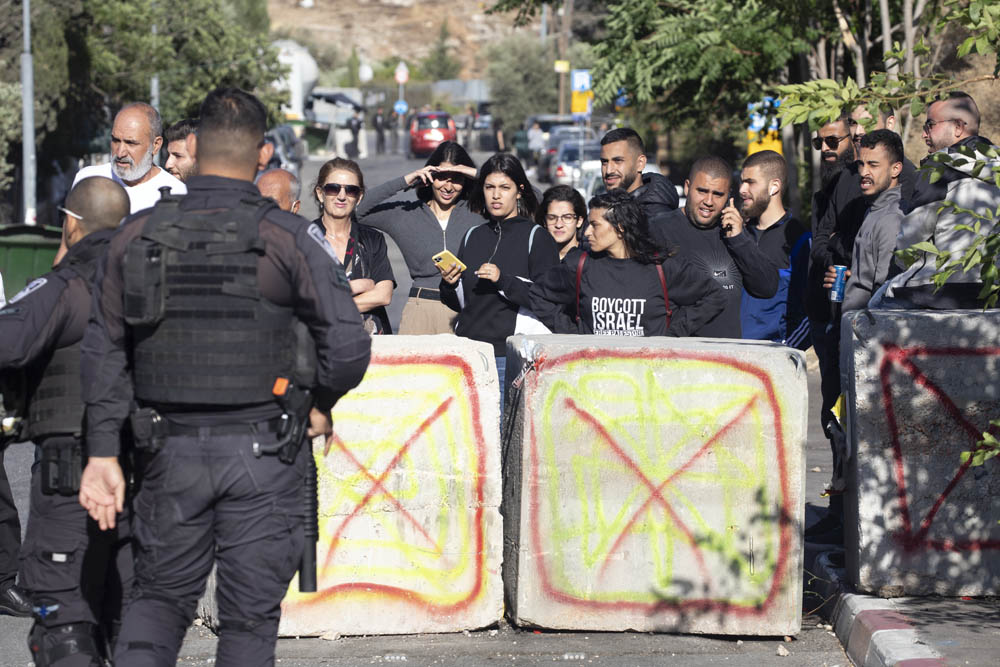
Besides, you are talking to me now as we sit on [Tel Aviv’s] Rothschild Boulevard. I’m in a place of privilege compared to the people who live under siege in Gaza or with the checkpoints in the West Bank. Do I have a moral right to tell them, from where I sit here, to wait 30 years until the one-state option makes it to the negotiation table?
Do you, as a Palestinian leader, feel something has happened here in terms of the sense that there is one Palestinian people between the river and the sea?
I have always felt that I was part of the Arab Palestinian people in the fullest sense of the word. But at the same time I am a citizen of the State of Israel. I have seen posters that refer to the “Palestinians-inside” [Palestinians citizens of Israel] in Arabic. It’s a question of one state or two states. If there is one state, then we are part of the Palestinian-inside. If there are two states, then [we are part of] Israel.
I’ve read that the youth are being lauded for not having been influenced by “Israelization.” Are you against Israelization or against disrupting the national identity of young Arabs? That’s the question. If you’re for one state, then you oppose Israelization. If you’re for two states, then there are things about Israelization that you should oppose, such as racist ideologies, but then you’re not opposed to serving as a member of the parliament, as a judge, or becoming part of the academic world. I am against disrupting the national identity of young Arabs. We are Palestinian Arabs. At the same time, we are citizens of the State of Israel who want equality in civil-political and in national terms.
Given the sense of Palestinian unity on the one hand and what is perceived as a betrayal by the Zionist left on the other, don’t you think it will be harder now to convince young Arabs to join together with Jews?
No. I think that even if I don’t agree with Meretz and its vote [in support of the government], I can understand it. I am a complex person. I am not one-dimensional. Do you think I don’t know Meretz? That I don’t know what Mossi Raz thinks? What Tamar Zandberg thinks? We have a lot in common, and if the situation is a little complex, it only means one thing: we have to talk to more and more people.
The National Palestinian Economy Week campaign [in which Palestinians were encouraged to buy solely from Palestinian-owned businesses in Israel and the occupied territories] was kind of a follow-up to what happened over the past two months. Do you think this is something the Palestinian leadership in Israel should be encouraging?
First of all, I encourage it because it comes from a place of empowering the disadvantaged. But it mustn’t be a dichotomy — Jews on their own and Arabs on their own, absolutely not. But empowering a disadvantaged group? Yes. When racists boycott Arabs, then you tell Arabs: “Come support our businesses.”
A discourse of hope over despair
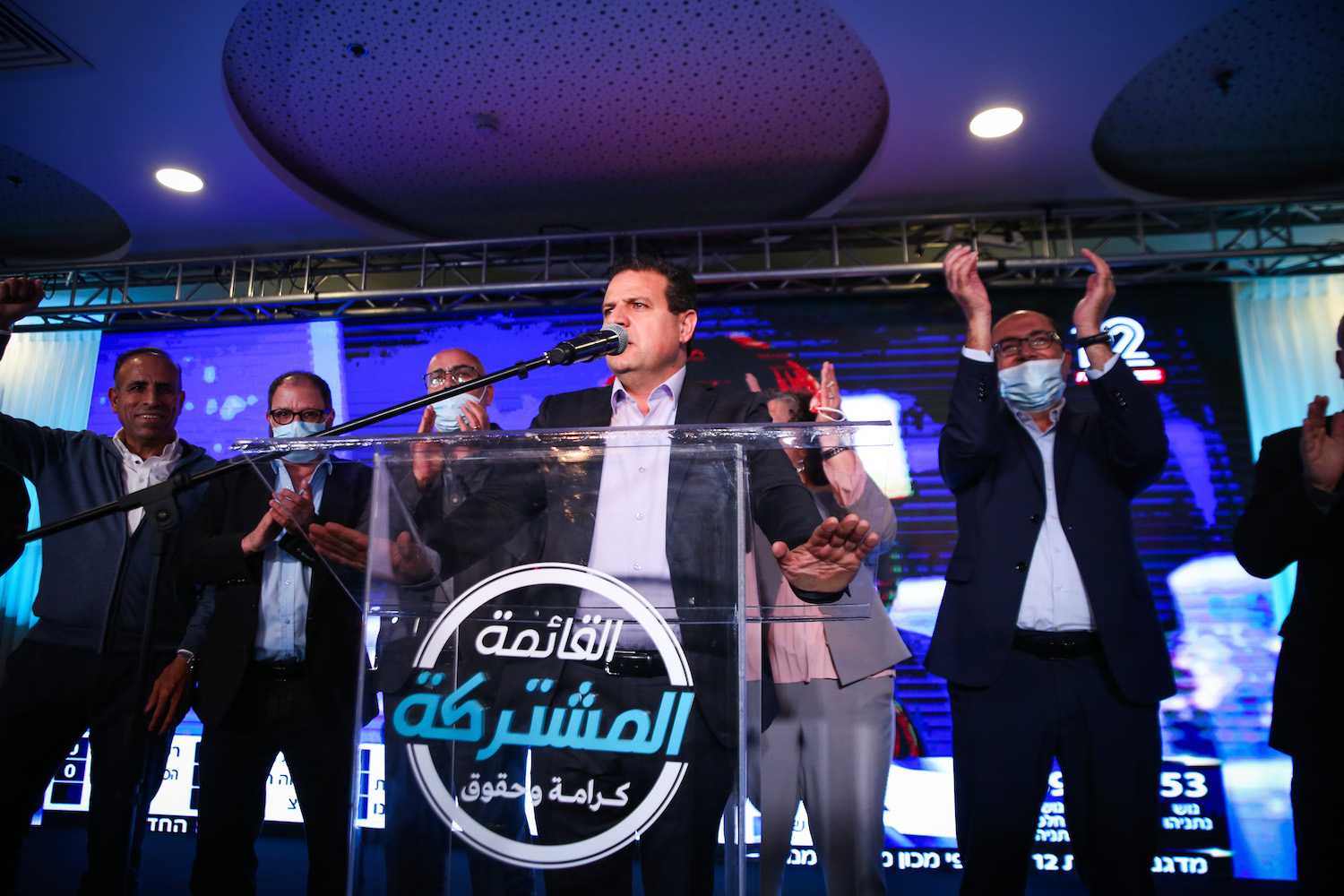
People in organizations that work towards a shared society consider Ra’am’s inclusion in the government an extremely meaningful event in terms of steering Jews toward a mindset that does not accept the establishment of a government without Arabs. What do you think?
While it is true that Ra’am acted like subjects, they are still Arabs. This means that this government relies on Arabs. True, they’re the kind of Arabs the Jewish Nation-State Law wants. True, racists can live with these kind of Arabs — but they are still an Arabs. Will it add a bit of legitimacy here and there for next time? I think to some extent, you could see that this also true. But it does not in any way legitimize Ra’am’s pulling back and turning Arabs into a consumer demographic.
Ra’am will be part of the government now, which means funding will go through them. What kind of difficulty does that put you in vis-a-vis your public?
I’ll tell you what Ra’am built its approach on. First of all, the fact that Gantz turned his back on us. That made it easy to say: the Zionist left — from the Nakba, to the Kufr Qassem massacre, to October 2000, to Gantz’s cold shoulder — all of it is the same. There is no difference between right and left.
The second thing is that two days after we reached an all-time high of 15 Knesset seats [in the March 2020 elections], the pandemic broke out. People are social creatures, and for a whole year they were anti-social. It brought public morale to an incredibly low point after a surge of hope.
Another thing is that never in the history of the Palestinian people has crime taken so many lives as it did in 2020. And the final thing is that both the rift among the Palestinians and the normalization with the Arab world creates this sense that we’re alone. All of this worked in concert to lower our ambitions, to bring us down.
This sort of discourse boosts Ra’am. On the other hand, we talk about ourselves as a “successful group” — at Rambam [hospital] in my hometown of Haifa, 31 percent of the doctors are Arabs. At Rothschild [hospital], eight of 15 wards are headed by Arabs. At the Technion [Israel Institute of Technology], 23 percent of the students are Arabs. This discourse boosts the Joint List and weakens Ra’am. Talking about crime, financial hardship, COVID, on the other hand…
Do you think this discourse has been inflated?
No, not inflated. I think Arab society contains both. But if we have a self-image of a failed society, then Ra’am rises. If we have a self-image of a successful, capable society, and if we make up 20 percent of the population, then let’s throw our weight into the political arena. It will strengthen the Joint List.
The doctors you mentioned likely voted for the Joint List. The more disadvantaged segments of Palestinian society, an analysis of the polls indicates, voted for Ra’am. How do you change this division?
That is true. Morale is extremely low after a year of COVID, record-breaking numbers in crime and violence, financial distress, and political standstill. People are looking for a quick fix. But the big problem is that the vast majority didn’t vote in the elections at all and don’t feel like change is possible. The only way to turn this around is to advance a discourse of hope over despair.
Ra’am’s give-and-take approach is actually going to hurt the vulnerable the most, because in exchange for sporadic achievements, Ra’am is willing to accept right-wing policies that hurt the disadvantaged the most.
Ra’am blasted the Joint List over issues such as LGBTQ and women’s rights. Without Ra’am, can Hadash and the Joint List take more liberal positions on these issues?
Everyone deserves rights. Hadash has obviously always held these positions. We may not have been able to speak on behalf of the entire Joint List, including Ra’am, about all sorts of social issues. Now, there’s no doubt that we can speak more clearly on behalf of the entire alliance, not just Hadash.
A version of this article was first published in Hebrew on Local Call. Read it here.


